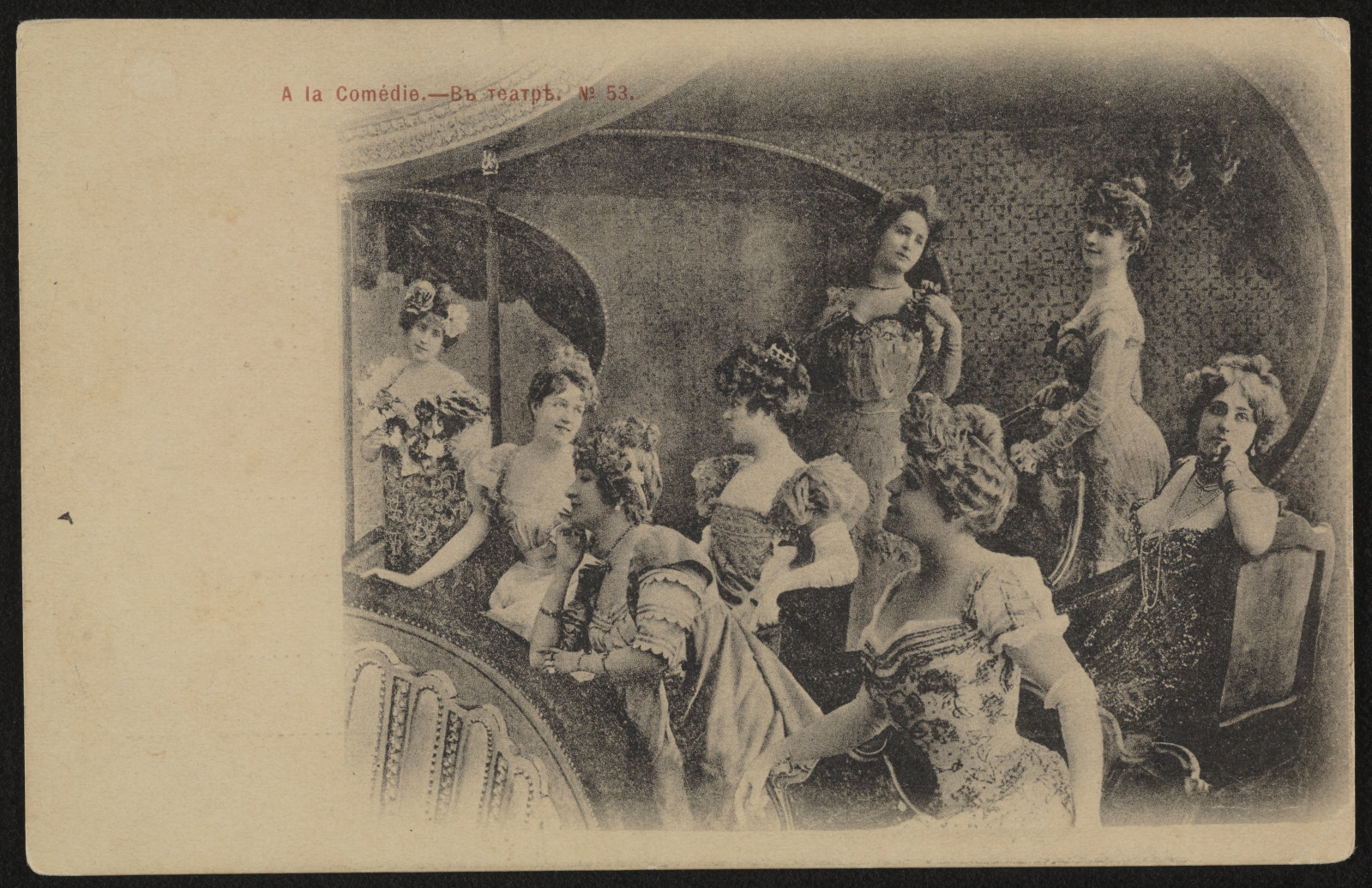Teatr/ A theatre of the audience
What was the Lublin audience like when the venue in Jezuicka staged mostly theatre plays? We do know that the audience included townspeople, tradespeople, civil servants, members of the intelligentsia, landowners, military men. The way they were seated in the auditorium, which could fit 300 people, reflected the social structure of the day. The ground level, which had benches, was for the middling sort, the boxes for the affluent; the uppermost level, described as jaskółka [the swallow], was occupied by the poorest – but typically most devoted – aficionados of Melpomene. It was most likely this section of the audience that was depicted by Feliks Pęczarski in his 1835 painting The Melodrama Effect.
The audience of the day could be boisterous and emotional in their response to the performances: there were spontaneous reactions, loud remarks, rambunctious applause, or – more painfully for actors – very direct criticism expressed with stomping and whistling, the latter equivalent to booing. The theatregoers were well aware of the power they had over the artists: after all, they paid for their individual show or season tickets, and used this economic mechanism to demand the kind of art they would enjoy. Some objective knowledge about the audience preferences of the day is supplied by records of benefis concerts held to celebrate a specific artist – the more his or her art was appreciated by viewers, the more they were willing to pay for it. In turn, there were also flops, either due to a part that was miscast or simply a play that didn’t meet the needs of the audience.

Theatre director Paweł Ratajewicz, who strove to win favour for his troupe with the Lublin audience, had to consider yielding to the following instance of blackmail:
The entire audience visiting or intending to visit the theatre are requesting that the Director replace the actors and actresses, except for Miss Bobrowska and Miss Zawistowska, Mr Teksel, Mr Tomaszewicz, Mr Krzesiński, Mr Lipiński. We do ask that you replace all the others, for otherwise there will be few who visit the theatre. And so, we believe you will not wish to deny our request and thus repulse those persons who do visit the theatre. This is therefore all that we ask of you, and you shall see what the result will be.





